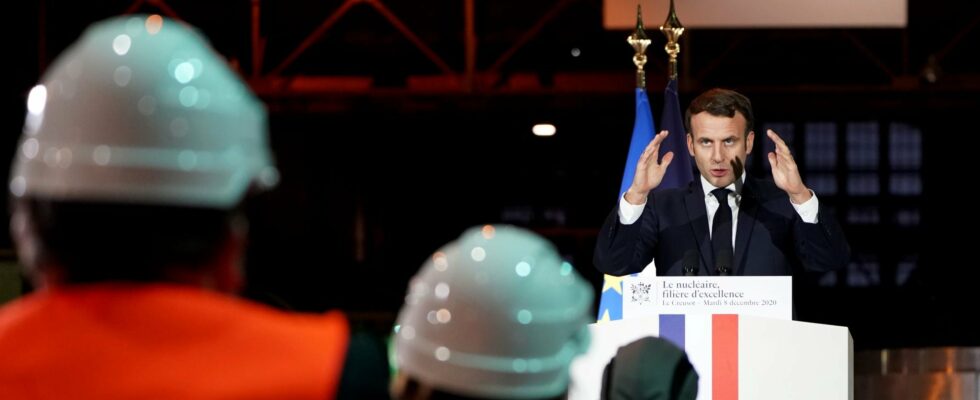It’s a resurrection, but not the one we imagined. On December 6, Framatome announced that it had signed an agreement with several Japanese entities to contribute to the development of a sodium-cooled fast neutron reactor (FNR-Na) demonstrator. Enough to revive some old memories for experts in the French nuclear industry. “The reactor that the Japanese want is neither more nor less Superphénix, the one that France abandoned by decision of the Jospin government,” slips one of them.
Should we rejoice that French know-how is being exported in this way or deplore the fact that this technology – developed here before being brutally stopped for reasons of cost and ideology – ultimately finds an echo so far from the France? Probably both. The partnership will allow Framatome to maintain, or even enrich, its skills. But on the other hand, we must undoubtedly see this as the consequence of the “stop and go” practiced by successive French governments.
“It must be recognized: some countries are more visionary than others. Japan has understood that only RnR makes it possible to close the cycle, that is to say to draw on spent fuel stocks to operate, reinforcing thus energy independence while reducing waste”, notes Jean-Luc Alexandre, founder and CEO of Naarea.
“This is good news but there is something ironic about it. This project will perhaps see the light of day in Japan, whereas initially it was a French program,” remarks Frédéric Varaine, founder d’Otrera and former head of the Astrid project, a research program aimed at developing an RnR prototype, also abandoned by the French state in 2019.
“One day France will have RnR”, indicated the High Commissioner for Atomic Energy Vincent Berger a few months ago. This is in line with the story. But when? In what form? And what will be the role of innovative start-ups in the process? Twelve of them passed a first filter by being designated winners of the France 2030 support program. But the selection is not over.
“There is a lot of confusion on the subject, confirms Jean-Luc Alexandre, from Naarea. In absolute terms, there can be large or small RnRs. Some are intended to produce electricity, others, like ours, to produce electricity and heat to decarbonize industrial processes… Two things are certain: first of all, our real competitors are the Russians, the Chinese and the Americans. Not the French historical players. . Then we let’s move forward.”
A recent – and contested – article from Point evokes the unrealistic development schedules of several nuclear start-ups, which would not have the slightest chance of seeing the light of day, even in the distant future, according to a recent audit submitted to the Elysée. In an interview given to the French Nuclear Energy Society, the High Commissioner for Atomic Energy Vincent Berger tempers: “First of all, it is important to specify that we have not ranked the 12 winners that we have evaluated”. In addition, the State will continue to support the sector, over varied time horizons.
Jean-Luc Alexandre specifies: “We had the lowest TRL – a measurement system used to assess the level of maturity of a technology – and yet our file was the first to be examined by the Nuclear Safety Authority in the end of pre-instruction seminar. This is proof that we are making progress. We created a first digital twin in 18 months. We built a research laboratory on molten salt and filed 24 patents. … You have to believe in innovation driven by start-ups.”
Avoid cheap innovation
Of course, the path requires overcoming several obstacles. For example, the construction of factories used to manufacture RnR fuel. For the moment, there is a gap between their emergence and the much faster development plans of start-ups. Not enough to penalize the production of the first cores. But it will undoubtedly be necessary to rectify the trajectory with the fuel recycling giant Orano.
“What bothers me is that we feel the somewhat deaf desire of certain actors, who are pushing in favor of a Messmer plan for RnR, indicates Frédéric Varaine. However, we know that the start-up model is more adapted to the development of innovation If we take past technologies to make a “smaller Astrid”, we will not be competitive with electricity produced at 50% more expensive. With their startups, the Americans want to go from strength to strength. the fourth generation of reactors. We cannot just slightly improve what we already know how to do.
“We can clearly see the difficulty of innovating when looking at SMRs,” slips an observer. EDF put its project on hold, a few months after NuScale abandoned a project in Idaho,” slips one. observer. At Otrera, engineers are working on a small breeder reactor, thus shaking up the physics that associates this property with large installations. With Naarea technology, the price of green hydrogen could equal that of its gray version. These finds have everything to attract investors. However, the current political uncertainty and the longer return on investment in the energy sector make fundraising more difficult.
The risk? Foreign funds could overtake their procrastinating French counterparts, at a stage where start-ups do not yet need a lot of money. These funds will not pose a problem at first. But when they want to resell their shares in these French start-ups, they will be less careful about the nationality of the buyer. Our nuggets are already being scrutinized with interest across the Atlantic. “We have already seen this in other industries, like AI or quantum. The Americans let certain countries get ahead, then they offer a golden bridge to the best specialists so that they can come and set up shop at home They only need to do this with 5% of the workforce in a sector to find themselves, in a few years, with world champions”, observes Jean Maillard, co-founder of the company Neext Engineering. The race for sustainable nuclear power has only just begun.
.
